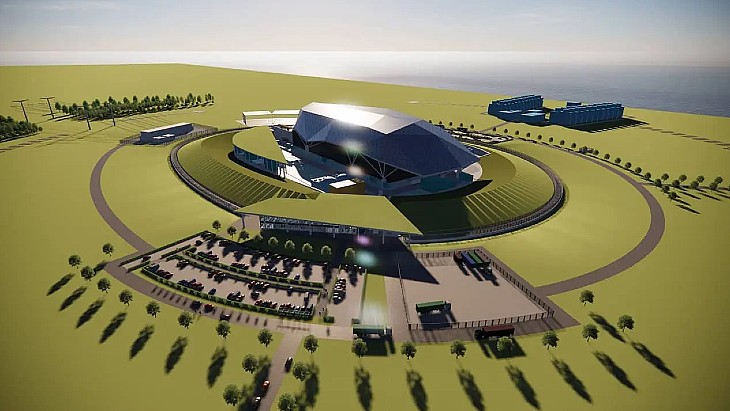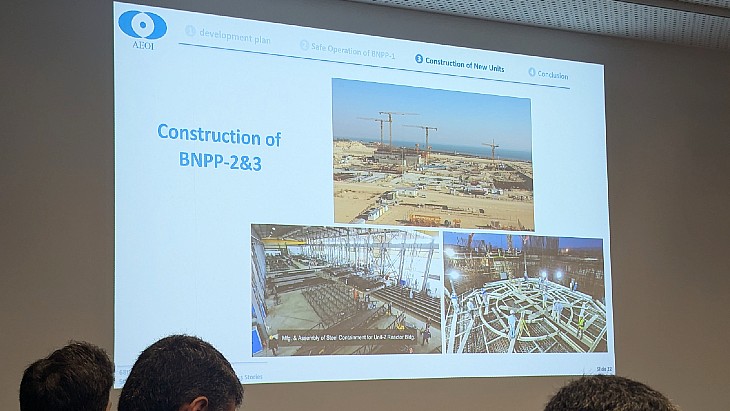Feasibility for AP1000s at Borssele to be studied
.jpg)
Following the award of a contract in December last year to Korea Hydro & Nuclear Power (KHNP) to conduct a feasibility study into the construction of two Korean-supplied reactors at Borssele, Westinghouse will now evaluate the construction of AP1000 units there. The Dutch government has previously said it also intends to award a third such contract to EDF of France. KHNP was due begin its feasibility study in January and it is expected to last at least six months.
The contract with Westinghouse was signed by Michel Heijdra, Director-General for Climate and Energy at the Dutch Ministry of Economic Affairs and Climate, and Elias Gedeon, Westinghouse Senior Vice President of Energy Systems Commercial Operations.
"The TFS represents a significant step forward in the country's ambitious strategy to achieve carbon neutrality by 2050, aligning with the European Union's climate goals and the Dutch commitment to carbon-neutral electricity production by 2035," Westinghouse said.
"We are honoured to begin work with the Dutch government on this preliminary yet crucial phase to deliver the world's most advanced, Generation III+ reactor technology," said Westinghouse Energy Systems President David Durham. "With our industry-leading, globally-deployed AP1000 technology, Westinghouse is proud to support the Dutch government and offer reliable, affordable, carbon-free electricity and economic benefits to the Netherlands for decades to come."
In December 2021, the Netherlands' new coalition government placed nuclear power at the heart of its climate and energy policy. Based on preliminary plans, two new reactors will be completed around 2035 and each will have a capacity of 1000-1650 MWe. The two reactors would provide 9-13% of the Netherlands' electricity production in 2035. The cabinet announced in December 2022 that it currently sees Borssele as the most suitable location for the construction of the new reactors.
Intention and proposal for participation
The Dutch Ministry of Economic Affairs and Climate has also announced that its 'proposal for participation' in the construction of the two new reactors will open on 23 February. Interested parties will have until 4 April to contribute ideas about the research for the construction of the reactors.
"This is the first step of the project procedure to arrive at a final choice of location," the ministry said.
"Companies, social organisations, local authorities and anyone who wants to do so can contribute ideas about the locations to be investigated and environmental effects for the construction of two new nuclear power stations," it said. "If the ideas meet the preconditions described in the intention, the ministry will investigate whether these locations are potentially suitable in the next step of the project procedure. In any case, the existing 'guarantee locations' are being investigated. These are Borssele/Vlissingen (the Sloe area), and Maasvlakte I (the port of Rotterdam)."
The ministry will also soon publish its 'intention' for the new reactors, in which it describes how it will involve interested parties and local residents in the project procedure in the future. Interested parties can indicate in which ways they would like to be involved in the next steps.
"The 'intention and proposal for participation' is a formal part of the project procedure for projects of national importance," the ministry said. "Based on a careful procedure, the cabinet will make a final decision on the location in 2025. The project procedure is one of the four work tracks required to make a final decision and start the tender. The first technical feasibility studies, market consultation and first steps for the National-Regional Package were started earlier."
_92619.jpg)

_84504.jpg)







_88592.jpg)

